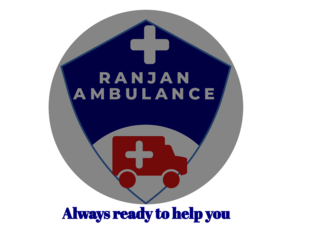Ambulance Service in Supaul: Bridging Healthcare Gaps in Rural Bihar
Supaul, a district in Bihar, India, is characterized by its rural landscape and agricultural economy. In this article, we explore the landscape of ambulance services in Supaul, highlighting their critical importance, the challenges they face, and the efforts underway to improve their effectiveness and accessibility.
Importance of Ambulance Services
Ambulance services play a vital role in Supaul’s healthcare infrastructure, serving as the primary mode of emergency medical transport for its residents. In rural areas like Supaul, where access to healthcare facilities can be limited and travel distances to hospitals are considerable, ambulances become lifelines during medical emergencies. They facilitate timely access to medical care, significantly impacting patient outcomes in cases of accidents, childbirth complications, heart attacks, and other critical conditions.
Current Ambulance Infrastructure
Ambulance services in Supaul are managed through a combination of government initiatives and private sector participation:
Government Ambulance Services: The Government of Bihar has implemented several initiatives to strengthen emergency response, including the National Ambulance Service (NAS). These ambulances are equipped with basic life support (BLS) and staffed with trained paramedics to stabilize patients en route to hospitals.
Private Ambulance Services: Private entities also contribute significantly to Supaul’s ambulance network. They offer a range of services from basic to advanced life support (ALS), often equipped with more advanced medical equipment and capable of handling complex medical emergencies. Private ambulances complement government services by providing additional coverage and faster response times in some areas.
Challenges Faced
Despite their importance, ambulance services in Supaul encounter several challenges that impact their efficiency and accessibility:
Infrastructure and Road Conditions: Limited road infrastructure and poor road conditions in rural areas can delay ambulance response times, particularly during monsoon seasons. Narrow roads and inadequate signage further complicate navigation, affecting timely patient transport.
Resource Constraints: Adequate funding for ambulance fleets, maintenance, and medical supplies remains a challenge. Ensuring a steady supply of fuel and consumables for ambulances is crucial for sustained service delivery.
Awareness and Utilization: Many residents in rural areas may lack awareness about when and how to utilize ambulance services during emergencies. Improving public education on emergency response protocols and the importance of timely medical care is essential.
Staffing and Training: Recruiting and retaining skilled paramedics and emergency medical technicians (EMTs) pose challenges. Continuous training programs are necessary to ensure personnel are prepared to handle diverse medical emergencies effectively.
Initiatives and Innovations
Efforts are underway to address these challenges and enhance ambulance services in Supaul:
Technology Integration: The adoption of GPS tracking systems and mobile apps for ambulance dispatch improves response times and navigation accuracy. These technologies help overcome challenges related to rural road infrastructure and facilitate quicker access to emergency scenes.
Community Engagement: Health education campaigns and first aid training programs empower communities to respond effectively during emergencies. Initiatives to raise awareness about ambulance services and emergency contact numbers aim to enhance utilization rates and improve patient outcomes.
Public-Private Partnerships: Collaborations between government agencies, healthcare providers, and non-governmental organizations (NGOs) are fostering synergies in ambulance service delivery. These partnerships optimize resource allocation, improve service coverage, and enhance overall emergency response capabilities.
Case Studies and Success Stories
Highlighting specific instances where ambulance services have made a significant impact in Supaul can illustrate their critical role:
Timely Response: Instances where ambulances reached accident sites or homes promptly, providing timely medical intervention and transporting patients to hospitals for further treatment.
Critical Care Management: Examples of advanced life support ambulances successfully managing complex medical cases during transit, showcasing the importance of skilled paramedics and well-equipped vehicles.
Future Outlook
Looking ahead, the future of ambulance services in Supaul shows promise with ongoing initiatives and anticipated improvements:
Expansion and Accessibility: Plans to expand ambulance coverage to underserved rural areas and improve response times through strategic deployment of ambulances in high-demand zones.
Technology Advancements: Continued integration of telemedicine and artificial intelligence (AI) in ambulance services to enhance real-time medical consultation and treatment capabilities during transit.
Quality Enhancement: Efforts to standardize ambulance service protocols, enhance training programs for personnel, and ensure regular maintenance of ambulance fleets to uphold service quality and reliability.
Conclusion
Ambulance services in Supaul are indispensable for ensuring timely and critical healthcare access in a predominantly rural district of Bihar. Despite challenges such as infrastructure limitations and resource constraints, concerted efforts by stakeholders are improving emergency medical response capabilities. Through technology integration, community engagement, and collaborative partnerships, Supaul is poised to strengthen its ambulance services, ensuring every individual receives prompt and efficient medical care during emergencies.
In summary, ambulance services in Supaul are not merely vehicles; they represent a lifeline connecting rural residents to essential healthcare services. As the district continues to develop, so too will its ability to meet the healthcare needs of its populace through robust and responsive ambulance services. Ambulances in Supaul embody hope and resilience, ensuring that medical emergencies are met with swift and effective responses, ultimately saving lives and enhancing community well-being.

